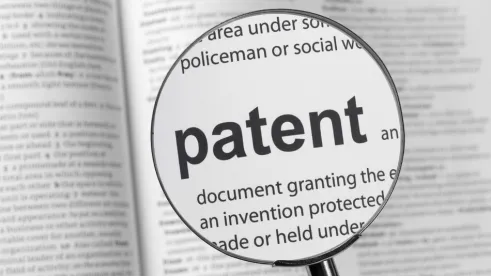Addressing the use of common sense for an obviousness analysis, the US Court of Appeals for the Federal Circuit held that conclusory statements about common sense cannot be used to supply missing claim limitations that play a major role in the claimed subject matter. Arendi SARL v. Apple Inc., et al., Case No. 15-2073 (Fed. Cir., Aug. 10, 2016) (O’Malley, J).
Arendi sued Apple, Google and others for infringement of its patent on detecting certain types of information in a document and searching external data sources for related information. The defendants filed a petition for inter partes review (IPR), and the US Patent and Trademark Office (PTO) instituted review on an obviousness ground based on a single prior art reference. That prior art detected phone numbers in a document and saved them to an external database, but did not conduct any searches using the detected phone number. The defendants asserted that it would have been common sense to first search the database for the phone number to avoid creating duplicate entries. The PTO’s Patent Trial and Appeal Board (PTAB or Board) agreed and found the claims unpatentable. Arendi appealed.
On appeal, the Federal Circuit addressed the permissible use of common sense for an obviousness analysis. It first noted that common sense is typically used to provide a motivation or rationale to combine rather than to supply a missing claim limitation. The Court then considered two of its apparently conflicting prior opinions on using common sense to supply missing claim limitations.
In Perfect Web (IP Update, Vol. 12, No. 12), the Court blessed an obviousness holding where common sense was used to supply a missing claim step. But the Federal Circuit characterized that missing step as unusually simple in a particularly straightforward technology, and stated that Perfect Web should be considered an exception rather than the rule.
In Hear-Wear (IP Update, Vol. 17, No. 6), the Court affirmed the rejection of an argument that common sense supplied a missing structural claim element. The Federal Circuit in Hear-Wear found that conclusory assertions without record evidence cannot be used to establish “core factual findings,” such as missing claim elements. Here, the Court reiterated that a common sense position cannot be used as a wholesale substitute for reasoned analysis and evidentiary support.
The PTAB’s decision appeared to parse these cases as barring the use of common sense to supply structural claim elements (as in Hear-Wear) but not claim steps (as in Perfect Web). The Federal Circuit ignored that distinction and instead held that the question of whether common sense can supply a missing claim limitation turns on whether the limitation is important, i.e., plays a major role in the claimed subject matter and, if missing, would leave the claims almost devoid of content. The Court concluded that the claim limitation at issue—searching an external data source using the information detected in the document—was important and thus could not be satisfied by the conclusory common sense assertions in the record. The Federal Circuit consequently reversed the PTAB’s unpatentability decision.




 />i
/>i

